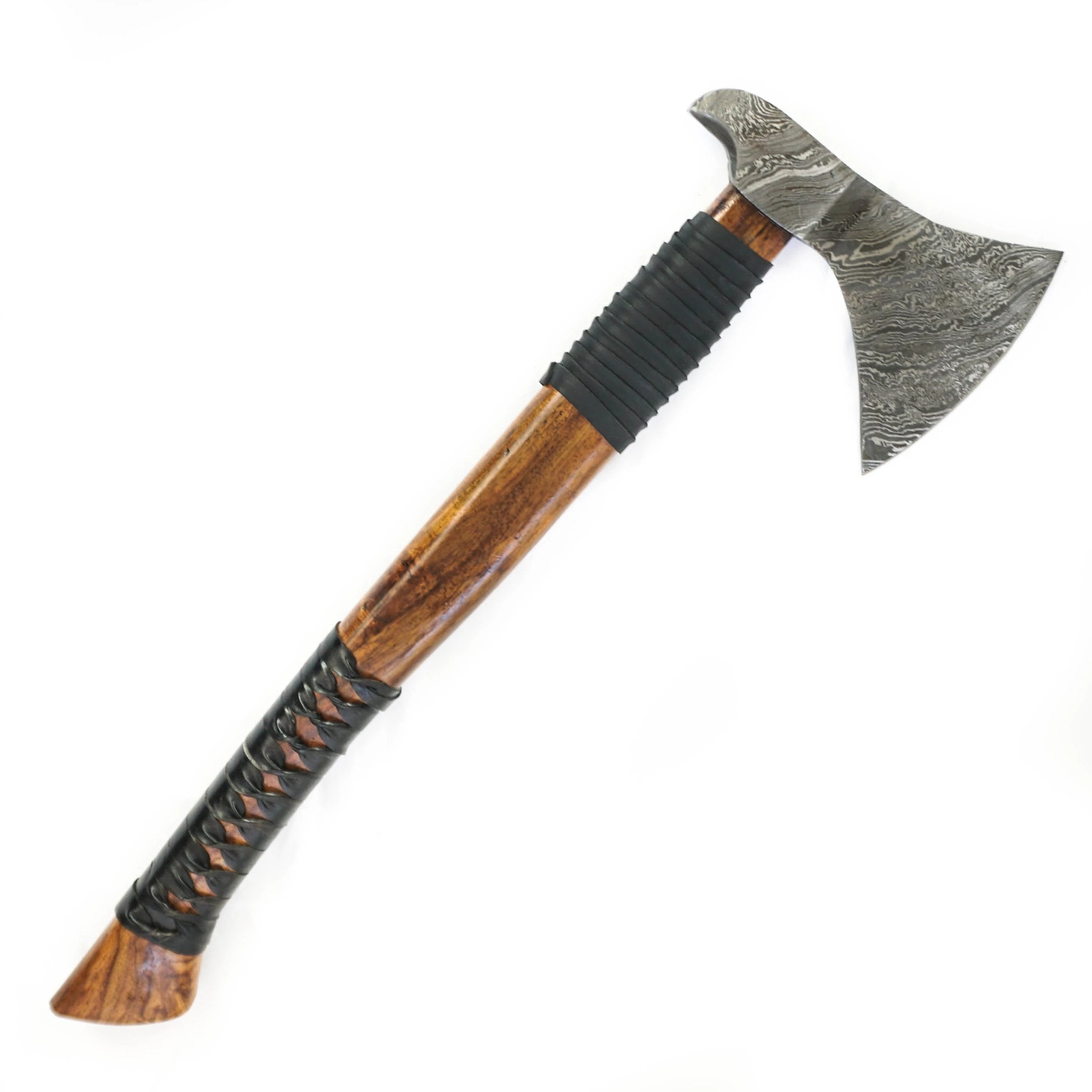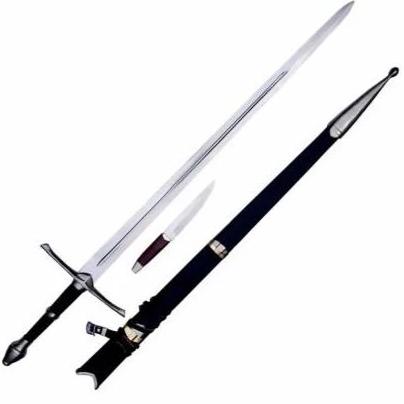Roman Spatha - High Carbon Damascus Steel Sword
Delve into the rich history of European warfare with the Roman Spatha, a formidable longsword that played a pivotal role from the 1st through the 12th centuries C.E. Originally developed in Rome from the shorter gladius, this sword became a cornerstone of military armament, prominently used during the Roman campaigns into Germany.
Key Features:
-
Blade Material: The blade is meticulously crafted from pattern welded Damascus steel. This superior composition involves 352 layers derived from 11 pieces of steel, folded five times. Our use of high carbon 1095 steel, known for its purity and resilience, results in a blade that combines flexibility with the ability to maintain a sharp, enduring edge.
-
Handle: The handle is crafted from traditionally styled wood, offering both aesthetic appeal and a comfortable grip during use.
-
Overall Length: At 35 inches, this sword showcases an elongated profile, enhancing its functionality with greater reach, making it more effective than its predecessor, the gladius.
-
Design Evolution: Although no longer used by the Romans post the 7th century, the spatha's design influenced the early Viking swords and later evolved into the Norman longsword by the 12th century, featuring a full cross guard and a compact pommel.
-
Versatility in Combat: The infantry version features a pointed tip for effective thrusting, while the cavalry version sports a rounded tip to prevent accidental injuries to horses.
-
Sheath: Comes with a durable leather sheath, ensuring protection and ease of transport.
-
Rockwell Hardness: With a hardness rating of 55-56 HRC, the sword perfectly balances hardness with toughness, suitable for both display and historical reenactment.
Usage: The Roman Spatha was utilized in both war and gladiatorial contests, initially serving as a primary weapon for infantry, eventually replacing the gladius due to its enhanced length and functionality.
Experience a piece of history with this exquisitely crafted Roman Spatha, a testament to the enduring legacy of Roman military ingenuity and its profound influence on European swordsmanship.













